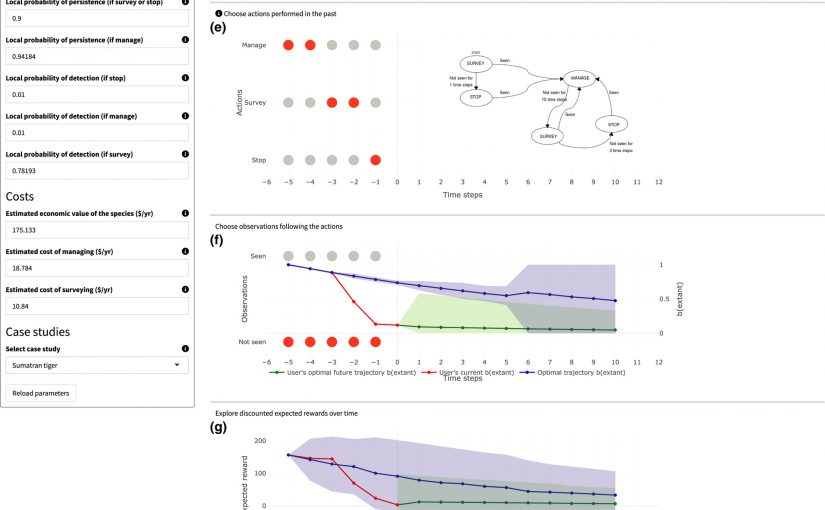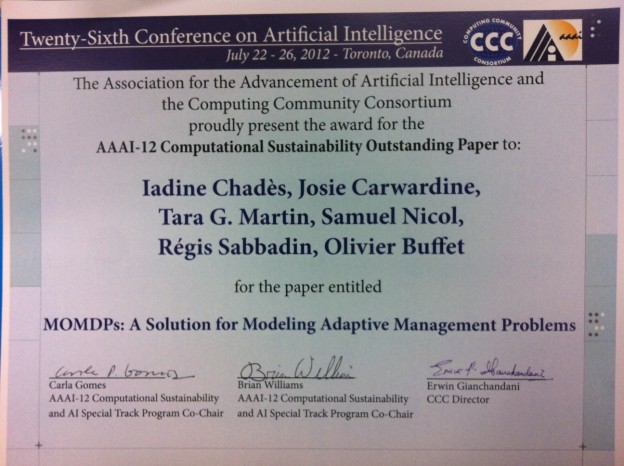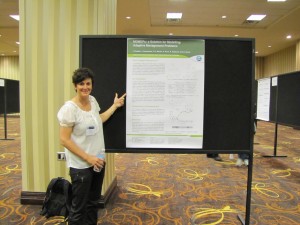In the last decade, artificial intelligence (AI) has increasingly been applied to help solve applied ecology problems. Partially observable Markov decision processes (POMDPs) are one such example. POMDPs have been applied in conservation, applied ecology and natural resource management to solve problems such as deciding when to stop managing or surveying threatened species that are difficult to detect. POMDP solvers are useful to find optimal sequential decisions under imperfect detection. However, POMDPs remain inaccessible to most applied ecologists.
We present the shiny r package smsPOMDP that solves the problem of ‘When to stop managing or surveying cryptic threatened species?’ (Chadès et al., 2008). We developed this package to address a common and challenging problem faced by conservation managers.
The smsPOMDP package and documentation are hosted at https://github.com/conservation‐decisions/smsPOMDP
In artificial intelligence, POMDPs are acknowledged as the Swiss army knife of decision models. However, POMDP’s application in applied ecology remains seldom despite repeated evidence of their flexibility. Our package smsPOMDP is fast and provides an entry point to further develop POMDP apps, contributing to further uptake of AI research to solve ecological problems.
Pascal, L, Memarzadeh, M, Boettiger, C, Lloyd, H, Chadès, I. A Shiny r app to solve the problem of when to stop managing or surveying species under imperfect detection. Methods Ecol Evol. 2020; 11: 1707– 1715. https://doi.org/10.1111/2041-210X.13501




